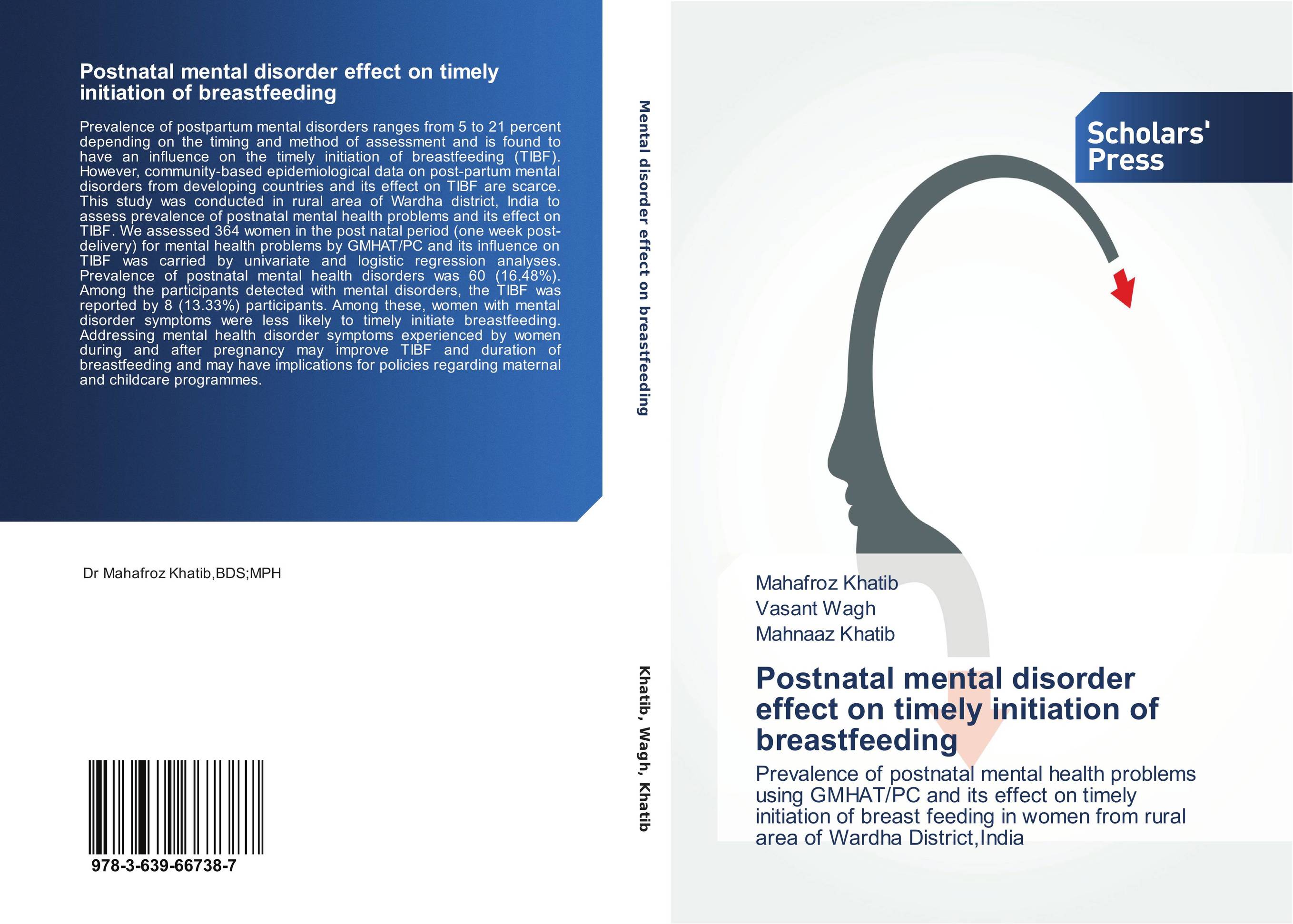| Поиск по каталогу |
|
(строгое соответствие)
|
- Профессиональная
- Научно-популярная
- Художественная
- Публицистика
- Детская
- Искусство
- Хобби, семья, дом
- Спорт
- Путеводители
- Блокноты, тетради, открытки
Postnatal mental disorder effect on timely initiation of breastfeeding. Prevalence of postnatal mental health problems using GMHAT/PC and its effect on timely initiation of breast feeding in women from rural area of Wardha District,India

В наличии
| Местонахождение: Алматы | Состояние экземпляра: новый |

Бумажная
версия
версия
Автор: Mahafroz Khatib,Vasant Wagh and Mahnaaz Khatib
ISBN: 9783639667387
Год издания: 2014
Формат книги: 60×90/16 (145×215 мм)
Количество страниц: 196
Издательство: Scholars' Press
Цена: 47399 тг
Положить в корзину
| Способы доставки в город Алматы * комплектация (срок до отгрузки) не более 2 рабочих дней |
| Самовывоз из города Алматы (пункты самовывоза партнёра CDEK) |
| Курьерская доставка CDEK из города Москва |
| Доставка Почтой России из города Москва |
Аннотация: Prevalence of postpartum mental disorders ranges from 5 to 21 percent depending on the timing and method of assessment and is found to have an influence on the timely initiation of breastfeeding (TIBF). However, community-based epidemiological data on post-partum mental disorders from developing countries and its effect on TIBF are scarce. This study was conducted in rural area of Wardha district, India to assess prevalence of postnatal mental health problems and its effect on TIBF. We assessed 364 women in the post natal period (one week post-delivery) for mental health problems by GMHAT/PC and its influence on TIBF was carried by univariate and logistic regression analyses. Prevalence of postnatal mental health disorders was 60 (16.48%). Among the participants detected with mental disorders, the TIBF was reported by 8 (13.33%) participants. Among these, women with mental disorder symptoms were less likely to timely initiate breastfeeding. Addressing mental health disorder symptoms experienced by women during and after pregnancy may improve TIBF and duration of breastfeeding and may have implications for policies regarding maternal and childcare programmes.
Ключевые слова: Breastfeeding, mental disorders



